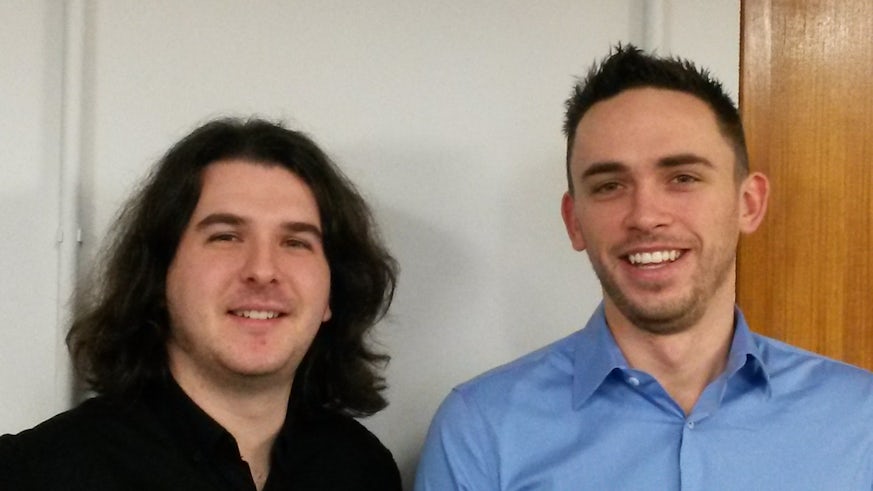EARTH students win awards for academic excellence
15 February 2016

Exploration and Resource Geology MESci student Jamie Price has won the Geologists’ Association Ivor Tupper Award which is given to the student who ‘best demonstrates academic excellence and a genuine commitment to the discipline. James Williams (MESci Geology) received the runners-up award. This is the first time that a student from Cardiff University has won the award, so it is remarkable news that another student from the School achieved second place. Jamie’s very strong academic record together with his close involvement with the Society of Economic Geologists throughout his degree contributed to his being presented with the award. Both students have been offered PhD positions in the School of Earth and Environmental Sciences.
In addition to excellent academic achievement, the award takes into consideration involvement in course-related activities. Jamie’s third-year dissertation was titled 'Gold Exploration in the Yalgoo-Singleton Greenstone Belt, Western Australia'. It involved 6 weeks fieldwork in the Australian outback, where he mapped part of the 2.7 billion year old greenstone belt, sampled areas of interest for gold and investigated the metallurgical setting of the gold deposits of the area. Whilst in Cardiff, Jamie has been involved with the Society of Economic Geologists (SEG) for three years, initially as secretary and then as President of the Student Chapter, organising a lecture series, a field trip to the Navan Pb-Zn mine, Eire, and a short course in Geochemical Exploration. He is currently Chairman of Cardiff SEG and is organise a week-long field trip to Finland this summer.
James' third-year dissertation 'A distal signal of the Gold Cove glacial event at Bonavista Bay, Newfoundland' was carried out at Stockholm University as part of an international exchange. He investigated Early Holocene changes in Labrador Sea surface hydrography in response to the deglaciation of the Laurentide Ice Sheet. This involved using geochemical and micropalaeontological proxy techniques including xrf-core scanning and diatom assemblage counts. James is a STEM ambassador and has been involved in a number of outreach events promoting the Earth sciences to the general public.